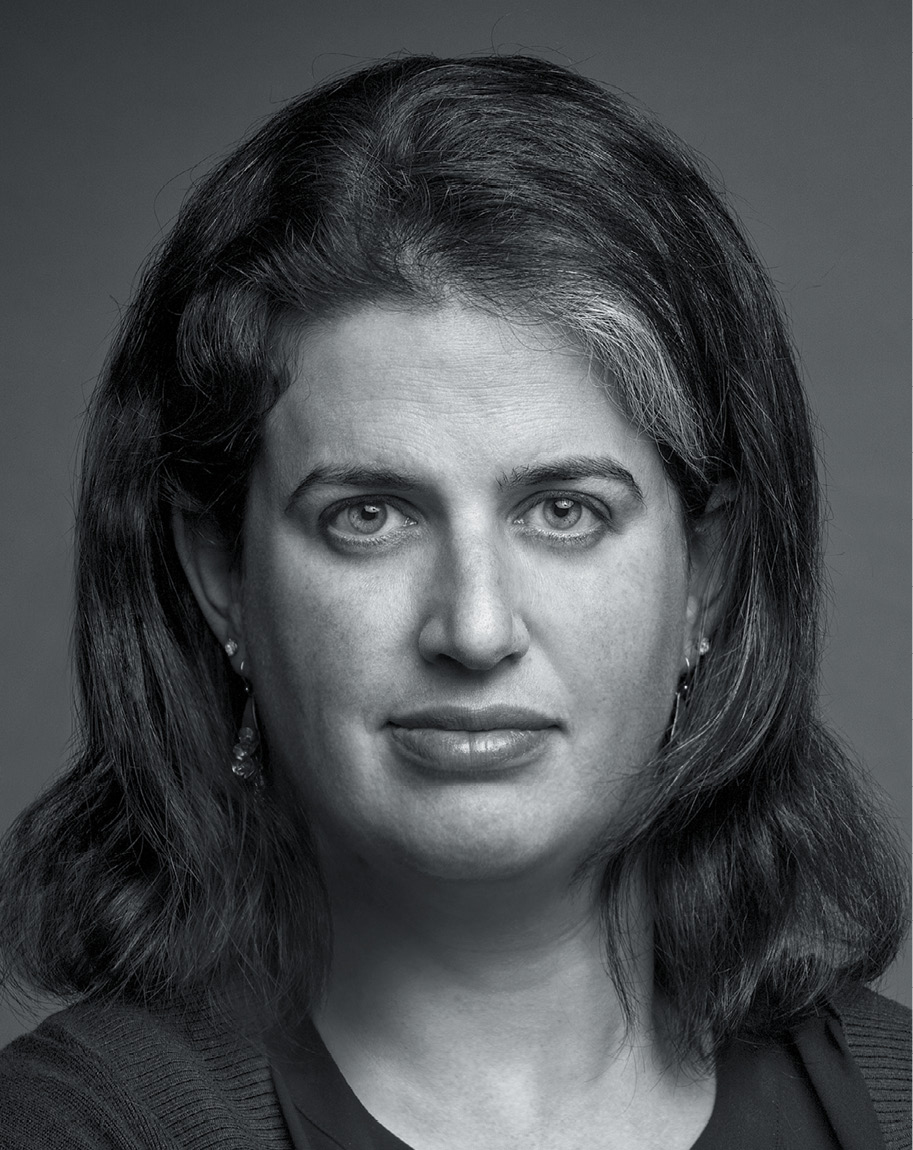Becca Heller

Chelsea
Before she was an internationally recognized human rights lawyer, Becca Heller was already good at arguing. Even when she was a little girl growing up in California in the 1980s, her parents could never get away with a simple “Because I said so”—they had to provide compelling reasons why she should listen to them. In high school, Becca skipped the classes that bored her. When her school dropped the debate team, she signed up to compete for another school. Years later, one of her friends would tell a New York Times reporter that in high school, she was voted “most likely to debate with a teacher.” Now, the friend said, “she’s most likely to argue with the president.”
What makes Becca such an excellent advocate is the same thing that has driven her all her life: She refuses to accept the status quo, especially when it’s arbitrary or unfair. In college at Dartmouth, she created a program to turn extra food from local farms into frozen meals for a nearby homeless shelter. After she graduated, she received a Fulbright Scholarship to work in Malawi on nutrition policy. Then, to the surprise of few people who knew her, she went to law school.
“What I like about working with refugees is that they are fighting so hard. In other public service work you can spend a lot of time trying to convince people they are worth fighting for. It’s really refreshing to advocate alongside people who are advocating for themselves.”
—BECCA HELLER
During her time at Yale Law School, she interned for a human rights organization in Israel. On a trip to Jordan, she met six Iraqi refugee families who changed her life. “I met with these families, and every single one said their biggest problem was legal assistance,” she said later. “They were being processed by the United Nations and the United States, and they didn’t understand the process. It was totally opaque to them.” When she came back to campus, she teamed up with a classmate, Jonathan Finer, to launch the Iraq Refugee Assistance Project (IRAP), dedicated to providing legal aid to Iraqi refugees. Soon after they introduced the program at a student activity fair, a hundred of their classmates signed up to help.
While still in law school, Becca traveled back and forth from New Haven to the Middle East and Washington, D.C. After she graduated, she moved to New York City to focus full-time on her organization, which she expanded and renamed the International Refugee Assistance Project (IRAP). By 2014, there were chapters at dozens of law schools, partnerships with more than fifty law firms, and offices in Amman, Jordan, and Beirut, Lebanon. The program focuses on helping the most vulnerable refugees, from children with medical emergencies to people being persecuted because of their sexual orientation. Within three years, Becca and her team had worked on more than two hundred cases and had a 90 percent success rate; they had resettled as many as a thousand Iraqi refugees in seven countries around the world.
After the 2016 election, Becca knew that her work had become exponentially more important. When the administration announced its cruel and discriminatory travel ban on Muslims entering the United States in January 2017, Becca was ready. She sent out an email with the subject line “URGENT—protect refugees arriving at airports.” When the order took effect two days later, thousands of lawyers were already standing by. Becca and her supporters headed to John F. Kennedy International Airport in New York, where she helped lead a team of lawyers offering legal help to travelers trying to enter the country. As the New York Times observed, “The public saw not so much a spontaneous reaction as the meticulous preparation of a loud, pugnacious thirty-five-year-old lawyer who is now in the middle of one of Mr. Trump’s biggest policy fights.” One of IRAP’s clients became the first to win a ruling against the ban, which led to a nationwide stay the next day. The pressure against President Trump’s Muslim ban intensified over the next weeks, with protests around the country. Marc and I went with friends to the first #NoBanNoWall protest in New York, and brought our kids with us to the next one. They won’t remember it, but when they’re older, they’ll know they were there.
In March 2017, I met Becca for the first time when friends asked if I would take part in a conversation at their home with Becca and Farah Marcolla, a former IRAP client and an Iraqi refugee. I was honored to be there with these two brave women to help raise funds to support IRAP’s vital work. Hearing from Farah, who was able to live safely in America thanks to IRAP’s efforts, left me with an even greater sense of urgency around championing this lifesaving organization and opposing the discriminatory policies of the Trump administration.
In 2018, Becca was recognized for her work with a MacArthur Fellowship. She is still working to support the rapidly growing number of forcibly displaced people around the world, while educating younger lawyers on the importance of this work, especially now. At a time when our government is turning its back on refugees and vulnerable people around the world, it’s good to know that Becca and others are questioning unjust laws and rules—and, even more than that, working to change them.